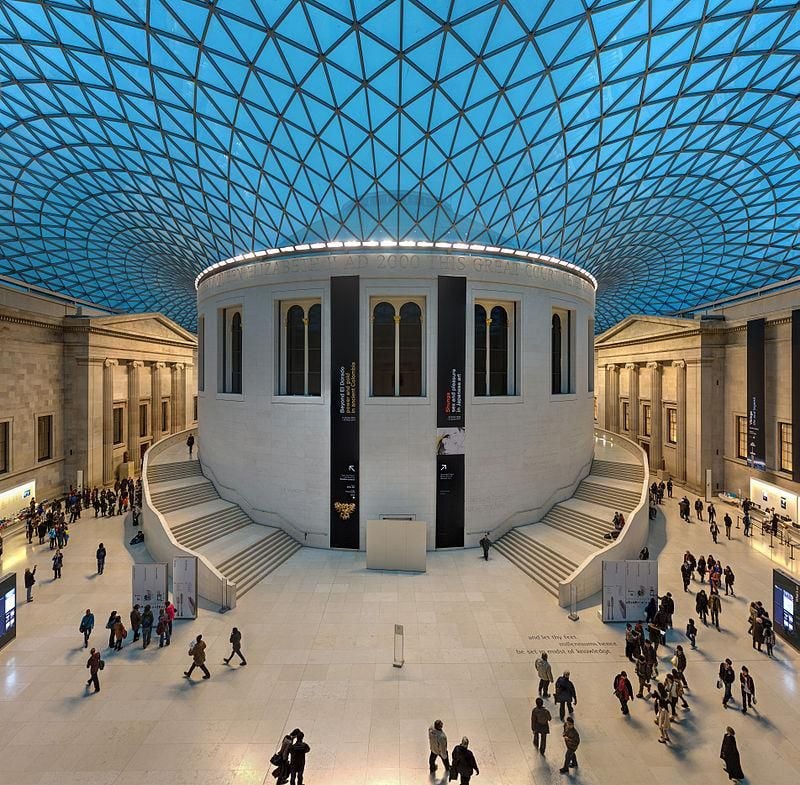The Term ‘Museum’ May Be Getting Redefined
But experts are divided on the proposed new definition
/https://tf-cmsv2-smithsonianmag-media.s3.amazonaws.com/filer/f4/dd/f4dd2815-7dd5-4360-976c-78fa46ecc1ce/1024px-louvre_pyramid.jpg)
Come September, the official definition of a museum may change. For the last 50 years, the definition, as dictated by International Council of Museums (ICOM), a consortium of 40,000 professionals representing some 20,000 institutions—has revolved around acquiring, conserving, researching and exhibiting the “tangible and intangible heritage of humanity and its environment for the purposes of education, study and enjoyment.”
Now, the ICOM’s general assembly is scheduled to vote on a new definition, which expands museums’ remit to emphasize inclusivity, democracy and critical dialogue that fosters “human dignity, ... social justice, global equality and planetary wellbeing.” But a petition issued by 24 national branches of the global group may lead to a postponement and revision of the selected statement. According to Vincent Noce of the Art Newspaper, representatives from France, Italy, Spain, Germany, Canada, Russia and other member countries requested the delay. Predicting “major dissent” if the current definition is approved at the September 7 meeting in Kyoto, the petitioners have asked for extra time to deliver a “new proposal.”
As Noce writes, proponents say the updated definition better reflects the demands of the 21st century, while critics argue it elevates ideology above such traditional values as research, preservation and education.

In full, the proposed redefinition reads:
Museums are democratizing, inclusive and polyphonic spaces for critical dialogue about the pasts and the futures. Acknowledging and addressing the conflicts and challenges of the present, they hold artifacts and specimens in trust for society, safeguard diverse memories for future generations and guarantee equal rights and equal access to heritage for all people.
Museums are not for profit. They are participatory and transparent, and work in active partnership with and for diverse communities to collect, preserve, research, interpret, exhibit, and enhance understandings of the world, aiming to contribute to human dignity and social justice, global equality and planetary wellbeing.
Speaking to the need for a redefinition, Jette Sandahl, the Danish curator who led the committee charged with writing a new definition, says the current phrasing ignores the demands of “cultural democracy” and “does not speak the language of the 21st century,” as museums must reckon with colonial-era artifacts’ provenance, funding sources, and the systemic under-representation of women and people of color. In an interview posted on YouTube, Sandahl adds, “It’s not that it’s wrong, [and] it’s not that its incorrect. It’s more that it’s inadequate.”
Klaus Staubermann, CEO of ICOM Germany, highlights specific concerns regarding the redefinition’s language: Whereas the current phrasing uses keywords including “institution” and “education,” the new version does not. “Both these words are very important, because their presence has a crucial effect on legislation in the German states,” Staubermann tells artnet News’ Kate Brown. However, he says that postponing the vote would be less about these smaller issues and “more about giving time to the discussion worldwide to address and accommodate everyone’s concerns.”
.@IcomOfficiel has unveiled its new museum definition after a worldwide consultation: https://t.co/AIdULFTix4
— Museums Association (@MuseumsAssoc) August 1, 2019
Do you think it captures what a museum is in the 21st century? #museums
François Mairesse, a professor at the Université Sorbonne Nouvelle and chair of the International Committee of Museology, resigned from Sandahl’s commission in June after deciding the proposal “did not reflect the discussions held over two years.” In an interview with the Art Newspaper, he adds, “It would be hard for most French museums—starting with the Louvre—to correspond to this definition, considering themselves as ‘polyphonic spaces.’ The ramifications could be serious.”
Per Hyperallergic’s Zachary Small, social media users have also pointed out that the proposed definition does not mention museums’ role as educational spaces. Responding to a poll posted by the London-based Museums Association, 62 percent of 226 respondents said they did not think the redefinition “captures what a museum is in the 21st century.”
ICOM issued an open call for potential definitions and received more than 250 international submissions. One U.S. proposal calls museums “stewards of culture,” while another from Poland suggests that such repositories protect “the material and intellectual life of the past in order to exist in the future.” You can read all of the submissions for redefining what the museum means here.
/https://tf-cmsv2-smithsonianmag-media.s3.amazonaws.com/accounts/headshot/mellon.png)
/https://tf-cmsv2-smithsonianmag-media.s3.amazonaws.com/accounts/headshot/mellon.png)